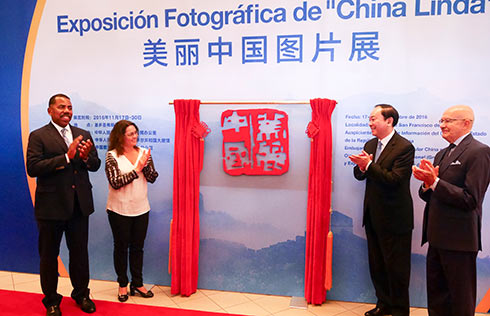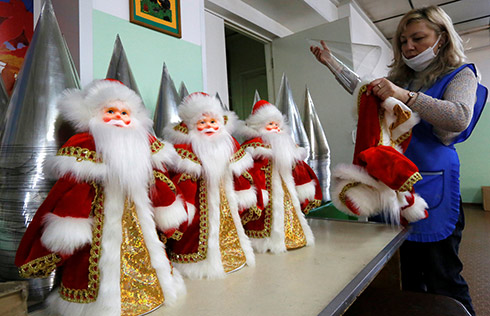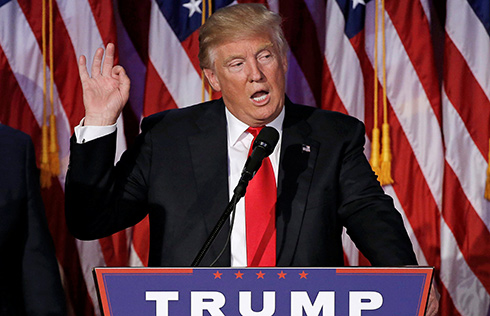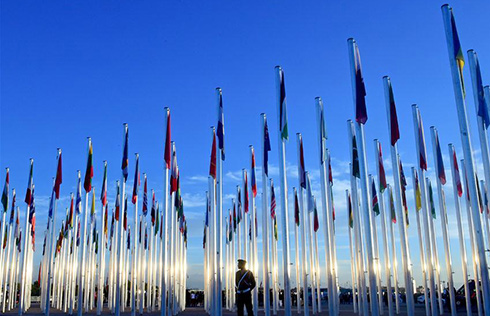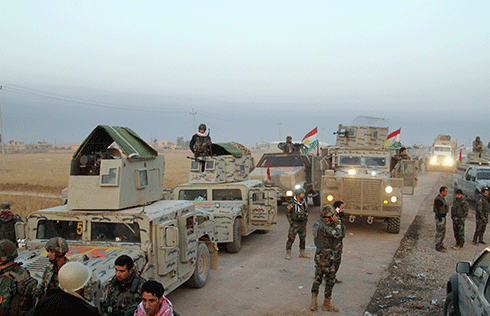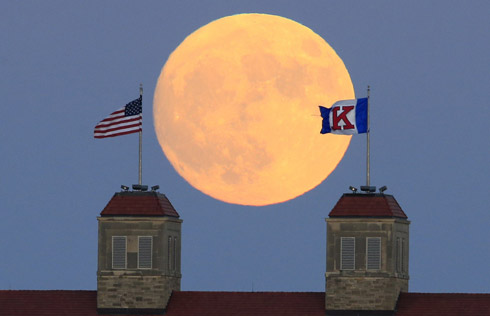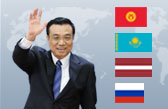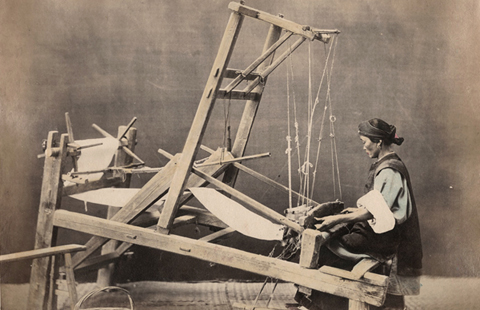Neighbors get tough on DPRK




Warning of the possibility of a new arms race in the region, analysts said negotiations are the way to ease tensions on the Korean Peninsula.
Their comments came as Seoul and Tokyo issued stern warnings on Friday and toughened their military stances.
Zhang Tuosheng, a researcher at the China Foundation for International and Strategic Studies, said Washington and its allies are seeking to handle the nuclear issue by toughening sanctions and resuming the Six-Party Talks.
"Diplomatic approaches on various levels are needed right now. The UN Security Council should play the most direct and effective role, envoys of the Six-Party Talks should have more contact and diplomatic interactions will be more dynamic in the upcoming days," Zhang said.
Charles Armstrong, a professor of history and director of the Center for Korean Research at Columbia University, said negotiations are still a better way than sanctions to solve the long-standing crisis, and it is not realistic to expect new sanctions would be any more effective than previous ones.
"The only realistic way forward, as difficult as it may be to imagine now, is to bring Pyongyang into negotiations with the US and other countries to resolve the nuclear issue," he said.
China in the past few days beefed up its diplomatic communications with world leaders, trying to prevent the crisis from spiraling out of control.
UN chief Ban Ki-moon and US Secretary of State John Kerry on Thursday called on the international community to act quickly and with unity in the wake of Pyongyang's third nuclear test on Tuesday.
Ban described the test as a "direct challenge to the international community", and he encouraged the UN Security Council to "act with unity" and to take appropriate measures as soon as possible.
Kerry said the test by the Democratic People's Republic of Korea "warrants a strong, a swift, and a credible response from the global community", and he vowed to ramp up coordination with Six-Party Talks partners China, the Republic of Korea, Japan and Russia.
The UN Security Council is still in the process of discussing punitive measures against the DPRK while the US and its allies are seeking another set of tough sanctions.
Meanwhile, the ROK military held an artillery exercise on Friday in an area close to the DPRK to deter Pyongyang, ROK Defense Ministry spokesman Kim Min-seok told reporters, Kyodo News Agency reported.
The exercise, including K-9 self-propelled artillery and multi-rocket launchers, was to show the military's "strong determination" to respond to the DPRK's provocations, the spokesman said.
In Tokyo, Japanese Defense Minister Itsunori Onodera told Reuters that Japan is allowed under the law to carry out strikes against enemy targets "when an intention to attack Japan is evident, the threat is imminent and there are no other options", despite Tokyo having no plan to do so now.
Zhang Xiao'an, vice-president of the United Nations Association of China, warned that some countries may use the nuclear test as an excuse for a new arms race in the region.
"The relevant parties should also give due consideration to regional security concerns," Zhang Xiao'an said.
The Japanese upper house on Friday adopted a resolution strongly denouncing the nuclear test and said Pyongyang should "totally abandon" its nuclear program immediately, Japan's Jiji Press reported.
Seoul may impose new sanctions against the DPRK before Park Geun-hye takes office on Feb 25, the ROK's Yonhap News Agency quoted an unnamed government source as saying on Friday.
The source said the sanctions are independent of those being deliberated at the UN Security Council and could be announced in the coming days "under the incumbent Lee Myung-bak administration".
Scott Snyder, a senior fellow for Korean studies and director of the program on US-Korea policy at the Council on Foreign Relations in the US, believes that sanctions alone will not work with the DPRK, but they may be effective in slowing or delaying its procurement of items from abroad that could be used to advance nuclear and missile programs.
In Beijing, Foreign Minister Yang Jiechi engaged in a series of phone calls with his counterparts after the Foreign Ministry said on Tuesday that China was "strongly dissatisfied with" and "firmly opposed to" the test.
Ted Galen Carpenter, senior fellow for defense and foreign policy studies at the Cato Institute, said: "China and the US need to work together on a new strategy, especially on Washington's part, to bring a nuclear-armed DPRK into cooperative international arrangements."
More than 100,000 troops and civilians on Thursday staged a mass rally in Pyongyang to celebrate the nuclear test, the Korean Central News Agency said.
Liu Yedan in Beijing and Reuters contributed to this story.



